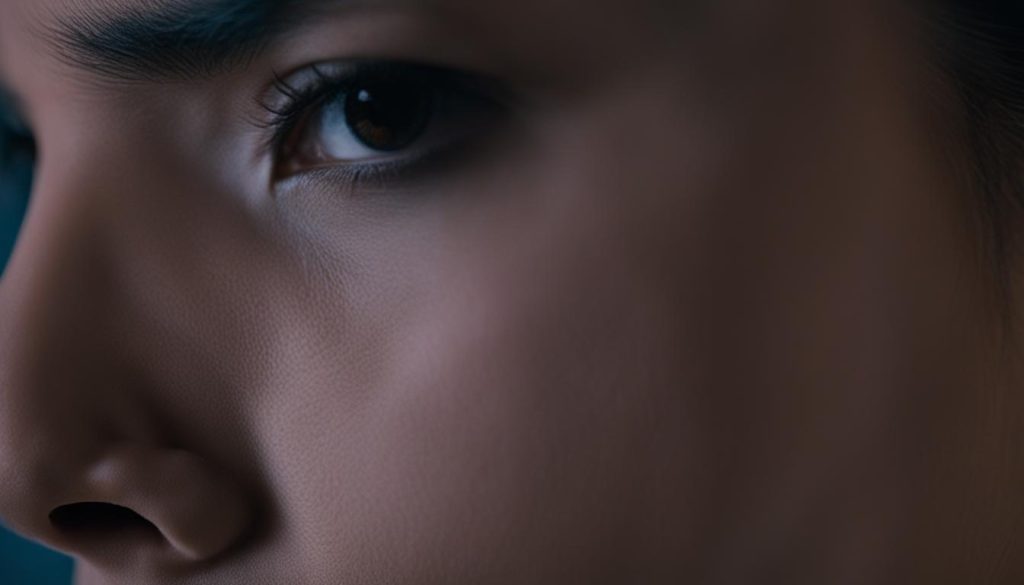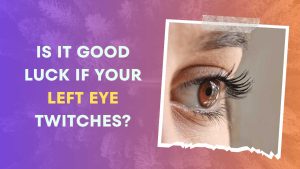Have you ever experienced a mysterious twitching sensation at the top of your cheek? You may be wondering if it’s a sign of good luck or bad luck. Cheek twitching is a phenomenon that has both spiritual meanings and superstitious myths associated with it.
Let’s delve into the intriguing world of cheek twitching and explore its significance in different cultures and beliefs.
Contents
Key Takeaways:
- Cheek twitching can have varying interpretations, ranging from good luck to bad luck, in different cultures and beliefs.
- Left cheek twitching is often associated with someone talking about you, difficulties in love relationships, or financial loss.
- On the other hand, right cheek twitching is commonly considered a positive sign, symbolizing good luck, prosperity, and the anticipation of good news.
- Cheek twitching, known as hemifacial spasm (HFS) in medical terms, can be caused by factors such as stress, fatigue, dehydration, or certain medications.
- If you experience persistent or severe cheek twitching, it’s advisable to consult a medical professional to rule out underlying medical conditions.
What Causes Cheek Twitching?
Cheek twitching, also known as hemifacial spasm (HFS), occurs when the muscles under the skin on one side of the face involuntarily contract. This phenomenon can be attributed to various factors, including:
- Stress: High levels of stress can trigger muscle cramps, including cheek twitching. To minimize the occurrence of twitches, it is important to manage stress through relaxation techniques, exercise, and self-care.
- Fatigue and Lack of Sleep: Insufficient rest can cause muscle fatigue and twitching, including in the cheeks. Getting an adequate amount of sleep and practicing good sleep hygiene is crucial to prevent twitching.
- Dehydration: Lack of hydration can result in muscle contractions and spasms. Drinking enough water throughout the day is essential to keeping the body hydrated and reducing the likelihood of cheek twitching.
- Nerve Palsy: Damage or compression of the facial nerve can lead to cheek twitching. This can occur due to various reasons, including Bell’s palsy, facial trauma, or tumors. Seeking medical attention is necessary for proper diagnosis and treatment.
- Medication Side Effects: Some medications, such as those used to treat epilepsy or psychosis, may have side effects that include muscle twitching. Consulting with a healthcare professional can help identify if medication is contributing to the cheek twitching and explore alternative options if necessary.
It’s important to note that most cases of cheek twitching are temporary and harmless. However, if you experience persistent or severe twitching, it is advisable to consult a healthcare professional to rule out any underlying medical conditions or neurological disorders.
Also read: Is It Good Luck When Your Nose Itches?
| Possible Causes of Cheek Twitching | Prevention and Management |
|---|---|
| Stress | Practice stress-reducing techniques and self-care activities |
| Fatigue and Lack of Sleep | Get sufficient rest and establish good sleep habits |
| Dehydration | Ensure adequate water intake throughout the day |
| Nerve Palsy | Consult a healthcare professional for proper diagnosis and treatment |
| Medication Side Effects | Discuss with a healthcare professional to explore alternative options |
Left Cheek Twitching Meaning and Superstition
If you’ve ever experienced a cramp on your left cheek, you may be curious about its meaning and the superstitions surrounding it.
In various cultures, left cheek twitching is associated with different interpretations and beliefs. While these are often based on folklore and superstition, they can provide interesting insights into cultural beliefs and traditions.
One common belief is that left cheek twitching signifies that someone is thinking or talking about you. This can range from casual conversations to more intense discussions. In some cultures, left cheek twitching is also linked to love relationships.
It is believed to indicate conflicts, arguments, or difficulties in finding love. Additionally, left cheek twitching is sometimes associated with impending tears or emotional distress.
Also read: If Your Right Eye Twitches Is it Good Luck?
Another interesting superstition surrounding left cheek twitching is its connection to financial matters. Some believe that a twitch on the left cheek could foretell a loss of money or financial instability.
However, it is important to remember that these interpretations are based on folklore and should not be taken as scientific or factual evidence.
| Superstitions | Left Cheek Twitching |
|---|---|
| Someone is thinking or talking about you | ✓ |
| Love relationship conflicts or difficulties | ✓ |
| Impending tears or emotional distress | ✓ |
| Possible indication of financial loss | ✓ |
It is important to approach left cheek twitching with skepticism and not rely solely on superstitions. Twitching in the cheek muscles is commonly caused by stress, fatigue, lack of sleep, or dehydration.
If you are experiencing persistent or severe twitching, it is always advisable to consult a medical professional to rule out any underlying medical conditions.
Right Cheek Twitching Meaning and Superstition
Right cheek twitching is often seen as a positive sign associated with good luck, prosperity, and success. Superstitions suggest that this phenomenon may indicate that someone is missing you or that you can expect some good news in the near future.
In fact, some believe that a twitch on the right cheek near the nose could even signal an inflow of money. However, cultural interpretations may differ, and not all views align with this positive perception.

While many view right cheek twitching as a sign of good fortune, others believe it to be a bad omen or a warning of impending calamity. It is crucial to remember that superstitions should be taken with a grain of salt and not relied upon as absolute truths.
Instead, it is essential to consider the context and other factors that may contribute to the twitching sensation.
It is important to explore the cultural and individual beliefs surrounding right cheek twitching to truly understand its meaning.
Different cultures have varying interpretations, and personal experiences can also shape one’s understanding of the twitching sensation. Ultimately, it is up to you to determine what meaning resonates most with your belief system.
Conclusion
In conclusion, cheek twitching carries diverse meanings and superstitious beliefs across different cultures. Whether it is the left or right side twitching, people associate it with various signs and symbols.
Superstitions attribute cheek twitching to events such as someone talking or thinking about you, impending tears, upcoming good news, love relationships, and even financial outcomes.
However, it is important to note that these interpretations are rooted in folklore and should be taken with a grain of salt.
From a medical standpoint, cheek twitching, also known as hemifacial spasm, is generally harmless and often caused by stress, fatigue, or other temporary factors.
However, persistent or severe twitching should be evaluated by a medical professional to rule out any underlying medical conditions. It is always better to be safe and seek professional guidance if you have concerns about your cheek twitching.
While the meanings and superstitions surrounding cheek twitching may be intriguing, it is essential to remember that they are not supported by scientific evidence. Understanding the potential medical causes and seeking appropriate medical advice is the most reliable approach to addressing persistent or worrisome twitching.
So, the next time your cheek twitches, you can embrace the cultural beliefs or take it as a reminder to take care of yourself.
FAQ
Is cheek twitching a sign of good luck or bad luck?
Cheek twitching can be associated with both good luck and bad luck, depending on cultural beliefs and superstitions.
What causes cheek twitching?
Cheek twitching, medically known as hemifacial spasm, can be caused by factors such as stress, fatigue, lack of sleep, dehydration, nerve palsy, or side effects of certain medications.
What does left cheek twitching mean?
Left cheek twitching is believed to have different meanings and superstitions, including poor love relationships, conflicts, arguments, difficulty finding love, someone thinking or talking about you, impending tears, possible pregnancy, or a potential loss of money.
What does right cheek twitching mean?
Right cheek twitching is often associated with good luck, prosperity, and success. It is believed to signify someone missing you, the anticipation of good news, an inflow of money, or upcoming wealth. However, interpretations may vary in different cultures.
Are cheek-twitching meanings the same across all cultures?
No, cheek-twitching meanings can vary across different cultures. While some interpretations associate it with good luck or bad luck, others link it to specific events such as thinking about or missing someone, upcoming news, love, tears, pregnancy, or financial outcomes.
When should I be concerned about cheek twitching?
Most cases of cheek twitching are harmless and temporary. However, if the twitching is persistent or severe, it is advisable to consult a doctor to rule out any underlying medical conditions.





